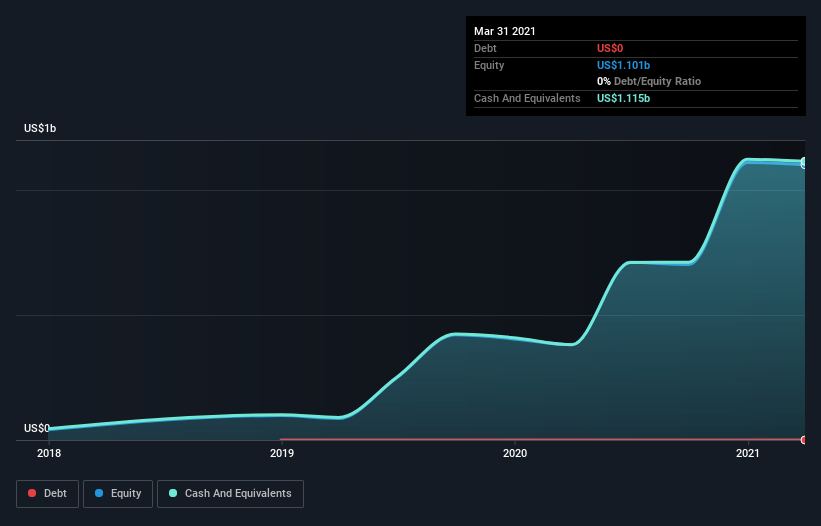Companies Like Turning Point Therapeutics (NASDAQ:TPTX) Can Afford To Invest In Growth
We can readily understand why investors are attracted to unprofitable companies. For example, biotech and mining exploration companies often lose money for years before finding success with a new treatment or mineral discovery. Having said that, unprofitable companies are risky because they could potentially burn through all their cash and become distressed.
So should Turning Point Therapeutics (NASDAQ:TPTX) shareholders be worried about its cash burn? In this article, we define cash burn as its annual (negative) free cash flow, which is the amount of money a company spends each year to fund its growth. Let's start with an examination of the business' cash, relative to its cash burn.
View our latest analysis for Turning Point Therapeutics
How Long Is Turning Point Therapeutics' Cash Runway?
A company's cash runway is the amount of time it would take to burn through its cash reserves at its current cash burn rate. As at March 2021, Turning Point Therapeutics had cash of US$1.1b and no debt. In the last year, its cash burn was US$72m. That means it had a cash runway of very many years as of March 2021. Notably, however, analysts think that Turning Point Therapeutics will break even (at a free cash flow level) before then. In that case, it may never reach the end of its cash runway. Depicted below, you can see how its cash holdings have changed over time.
How Is Turning Point Therapeutics' Cash Burn Changing Over Time?
In our view, Turning Point Therapeutics doesn't yet produce significant amounts of operating revenue, since it reported just US$50m in the last twelve months. Therefore, for the purposes of this analysis we'll focus on how the cash burn is tracking. With cash burn dropping by 7.8% it seems management feel the company is spending enough to advance its business plans at an appropriate pace. Clearly, however, the crucial factor is whether the company will grow its business going forward. So you might want to take a peek at how much the company is expected to grow in the next few years.
Can Turning Point Therapeutics Raise More Cash Easily?
Even though it has reduced its cash burn recently, shareholders should still consider how easy it would be for Turning Point Therapeutics to raise more cash in the future. Companies can raise capital through either debt or equity. One of the main advantages held by publicly listed companies is that they can sell shares to investors to raise cash and fund growth. By comparing a company's annual cash burn to its total market capitalisation, we can estimate roughly how many shares it would have to issue in order to run the company for another year (at the same burn rate).
Turning Point Therapeutics' cash burn of US$72m is about 2.0% of its US$3.6b market capitalisation. So it could almost certainly just borrow a little to fund another year's growth, or else easily raise the cash by issuing a few shares.
How Risky Is Turning Point Therapeutics' Cash Burn Situation?
As you can probably tell by now, we're not too worried about Turning Point Therapeutics' cash burn. In particular, we think its cash runway stands out as evidence that the company is well on top of its spending. Its weak point is its cash burn reduction, but even that wasn't too bad! One real positive is that analysts are forecasting that the company will reach breakeven. After considering a range of factors in this article, we're pretty relaxed about its cash burn, since the company seems to be in a good position to continue to fund its growth. Readers need to have a sound understanding of business risks before investing in a stock, and we've spotted 3 warning signs for Turning Point Therapeutics that potential shareholders should take into account before putting money into a stock.
Of course, you might find a fantastic investment by looking elsewhere. So take a peek at this free list of companies insiders are buying, and this list of stocks growth stocks (according to analyst forecasts)
This article by Simply Wall St is general in nature. It does not constitute a recommendation to buy or sell any stock, and does not take account of your objectives, or your financial situation. We aim to bring you long-term focused analysis driven by fundamental data. Note that our analysis may not factor in the latest price-sensitive company announcements or qualitative material. Simply Wall St has no position in any stocks mentioned.
Have feedback on this article? Concerned about the content? Get in touch with us directly. Alternatively, email editorial-team (at) simplywallst.com.

